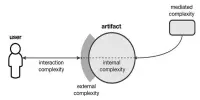Excessive screen time in kids has been a source of concern for parents, educators, and healthcare providers. While some screen time can be beneficial for education and pleasure, excessive and uncontrolled use of screens, such as cellphones, tablets, laptops, and television, may be linked to a number of developmental delays and health risks in children.
How much screen time is sufficient for a child? It’s the question on many parents’ minds. A recent cohort study has discovered that one-year-olds’ screen use is linked to developmental impairments.
The amount of screen time one-year-olds spend is linked to developmental impairments. This discovery, made by Tohoku University researchers in collaboration with scientists from Hamamatsu University School of Medicine, was published in the journal JAMA Pediatrics.
The study looked at 7,097 mother-child pairs that were members of the Tohoku Medical Megabank Project Birth and Three-Generation Cohort Study. Parental questionnaires were used to assess each child’s screen time exposure, which included seeing televisions, video game displays, tablets, mobile phones, and other electronic devices with visual displays.
The differing levels of developmental delays in the domains, as well as the absence of any detected delay in some of them at each stage of life examined, suggests that the domains should be considered separately in future discussions of the association between screen time and child development.
Taku Obara
The children in the study were almost evenly split between boys (51.8%) and girls (48.2%). Their screen time exposure was assigned to the categories of less than one hour (48.5% of subjects), from one to less than two hours (29.5%), from two to less than four hours (17.9%), and four or more hours (4.1%).
At two and four years old, the children’s development was tested in five domains: communication, gross motor, fine motor, problem solving, and personal and social abilities. Previous research in the topic has often not split development down into separate domains, resulting in a less nuanced picture.
An established statistical technique was used to analyze the relationship between screen time at age one and subsequent developmental delay, which revealed a dose-response link, which means that the level of developmental delay (the response) was correlated to the amount (dose) of screen time.

Increased screen usage when one was associated with developmental delays in all domains except gross motor abilities in children aged two. Increased screen time, however, was associated with developmental impairments in only the communication and problem-solving domains by the age of four.
“The differing levels of developmental delays in the domains, as well as the absence of any detected delay in some of them at each stage of life examined, suggests that the domains should be considered separately in future discussions of the association between screen time and child development,” says Tohoku University epidemiologist Taku Obara, the study’s corresponding author.
One reason for undertaking this study was recent evidence published by the World Health Organization and the American Academy of Pediatrics suggesting that only a minority of children are meeting guidelines for limiting screen time exposure. The guidelines were designed to ensure that children engage in sufficient physical activity and social interaction.
“The rapid proliferation of digital devices, combined with the impact of the COVID pandemic, has significantly increased screen time for children and adolescents, but this study does not simply recommend limiting screen time.” According to Obara, “this study suggests an association, not causation, between screen time and developmental delay.”
“We use the term ‘delay’ in accordance with previous research, but whether this difference in development is truly a ‘delay’ is debatable.” In future studies, we hope to obtain a better understanding of the consequences of different forms of screen exposure.”
















